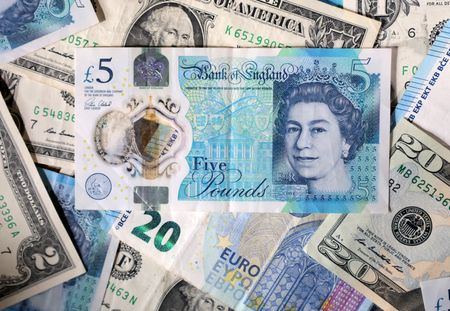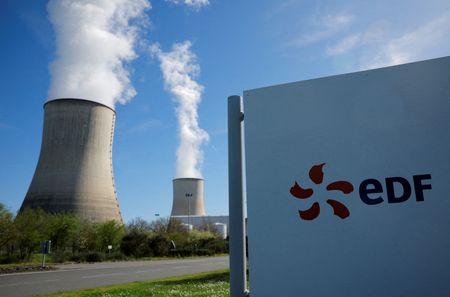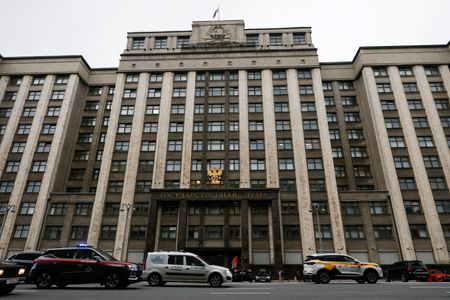By Amanda Cooper
LONDON (Reuters) -The pound steadied on Tuesday, consolidating after the previous day’s rally, as investors took stock of data that showed UK government borrowing soared in June, a reminder of the fragility of Britain’s public finances.
Sterling, which rose 0.6% on Monday, its biggest one-day gain in a month, was last at $1.3493, showing little change on the day. It was also steady against the euro, which was at 86.7 pence.
Britain borrowed more than expected in June as high inflation added to the government’s debt costs, according to official data that is likely to add to speculation about the need for fresh tax increases later this year.
Public sector net borrowing totalled 20.7 billion pounds ($27.9 billion) last month, the data showed. This compares with a forecast of 17.1 billion pounds for June from the Office for Budget Responsibility, the budget watchdog.
“These overshot expectations yet again, a fact that should refocus minds on UK fiscal sustainability risks, especially after warnings by the ONS that the 20.7 billion pound figure recorded represents ‘the second-highest June borrowing since monthly records began in 1993, after that of June 2020’,” analysts at Monex said.
“As we have noted previously, this is not a sterling positive dynamic, leaving risks to the pound tilted to the downside ahead of Thursday’s PMI release,” they said.
The borrowing figures added to a sense among investors that finance minister Rachel Reeves may have to raise taxes again later this year to remain on track to meet her targets for fixing the public finances.
A separate report on Tuesday showed grocery inflation in Britain rose to 5.2% in the four weeks to July 13, up from 4.7% in last month’s report and the highest since January last year, heaping more pressure on UK households.
Market researcher Worldpanel by Numerator, which published the report, said just under two-thirds of households say they are “very concerned” about the cost of their groceries, and are switching to supermarket own-label products.
The numbers align with data last week that showed nationwide consumer price inflation picked up more than expected in June, also hitting the fastest pace since January 2024.
The Bank of England is expected to cut rates by a quarter point next week and at least one more time before the end of the year.
(Reporting by Amanda Cooper. Editing by Mark Potter)










